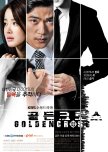
Golden Cross can be divided into two parts: Before episode 15 and after episode 15. The first part was gripping; events kept getting more intense with each minute passing by, the revenge built up was going smoothly, the characters were more rational and interesting to follow. Prior to episode 15, most of things were impressive; I even called it a high-class piece and one of the most underrated currently airing dramas but I guess too much arrogance crushed my dreams to select this as the best K-drama of the year.
After episode 15, everything started to fall apart drastically; the plot lost focus and the story took a dangerous turn. The drama went forward and backward leading all wrong directions without finding its right balance. A certain twist ruined it all for me, I am very disappointed with the writer-nim; she was the woman who wrote a fabulous drama like The Bridal Mask so I thought that she can handle an economical revenge thriller in a better way than this. The woman just couldn’t keep the drama going for 20 hours. I think the right length for this drama should’ve been 16 episodes, if it ended right there; then things would’ve been great.
You simply cannot hate a drama because of five disastrous episodes; but it really depends on thir location in the drama’s airing plan; if these episodes were at the beginning, at the middle or came in separately then the viewer could be lenient but delivering those types of episodes at the end back to back is unforgivable. It’s a fact that the latter episodes of each drama tend to be the most important ones so yeah, it’s absolutely intolerable.
The acting was high-class; there were absolutely mesmerizing and well-chosen actors for this one. You can’t say “no” to Kim Kang Woo’s penetrating acting, Jung Bo Seok’s veteran style, Uhm Ki Joon’s charismatic skills and all other actors’ dedication to their roles. I loved the 100% idol-free main cast; they simply open your appetite for real acting. The characters on the other hand weren’t all appealing. For instance; the female department suffered so badly from laid-back characters without much changes or depth.
The music and cinematography for this one were nice but forgettable; they didn’t add too much impact on the story.
Watch if:
-You’re hardcore fan of revenge dramas.
-You like idol-free dramas.
Do not watch if:
-You’re looking for mind games and mental war.
-You’re looking for a masterpiece out of the revenge theme.
-You’re looking for romance.
Golden Cross was an amazing drama up until episode 15 when everything started heading to the wrong direction. I didn’t hate it but it’s a shame since this drama held too much potentials to become one of the better K-dramas of the year.
Was this review helpful to you?
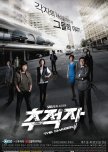
It’s a shame that this drama didn’t get the right international attention despite the fact that this is one of the best produced K-dramas back in 2012.
This is a journey in the harsh world of political schemes and the higher ups power struggle where the jungle law is effective: “the strong consumes the weak”. However, a man defies that law and starts his own journey of justice to defend his beliefs accompanied by fellows and confronted by whoever who gets hold of power. The Chaser’s screenwriting is almost flawless if we exclude some events, nothing less from a genius writer named Park Kyeong Soo who never fails in delivering delicious witty dialogues full of wisdom quotes. The thrilling events will keep you at the edge of your seat; just get ready to throw yourself into a ride of consuming twists and endless turns because that’s the core of this drama: Extremely Intense screenwriting.
If I have to talk about acting, I would say it’s high-class and very penetrating especially the main leads’. With veteran charismatic actors like Kim Sang Joong and Son Hyun Joo, you’re bound to expect perfect roles’ portrayal and astonishing acting skills. Other actors were also fitting and quite enjoyable to watch.
As for the characters, you will find yourself compassionate towards the protagonist and not hating the evil figure mainly because he succeeds at making you understand his motives. The rest of characters were appreciated especially their development but if I have to mention the most absorbing character in this drama, I would say Chairman Seo Dong Hwan. He had such a complex character that can be described as a man of wisdom, who represented power but those qualities can also be interpreted as filthy power and misleading wisdom.
It's a given that intense dramas with several twists would lose its factor of surprise once it's rewatched that's why its value is low.
To summarize, you should watch this if you’re looking for a good thriller, unique plot, cliché-free storyline, top-notch acting, powerful screenwriting and deep characters. However, if you’re searching for a romantic plot, cheesy events, light drama or idol actors then you shouldn’t be reading this in the first place.
Was this review helpful to you?

The plot description released by NHK got me at first sight (or more like at first read). I thought this drama seems intriguing and without second thoughts I started downloading it. Not long after that, I started watching it and finished the whole thing even without subtitles. It was certainly worth the while.
Platonic’s plot, characters and events’ flowing is very similar to the way Japanese used to do dramas back in the late 90’s to the beginning of the millennium. I surely had a nostalgic moment while watching this. That factor amongst others helped this drama to stabilize an interesting watch until the very last end. It wasn’t mind-blowing but it was attention-grabbing. I dislike tearjerkers and everything that falls under that category. Fortunately, Platonic didn’t take that “I am going to die but I love you *cries* *cries*” turn. Instead, the drama took reality’s turn and made feelings and sentiments sound so genuine despite their simplicity. It excels at throwing every surreal sensation and exchanging it with more down to earth and believable emotions
On the other hand, this drama was somewhat slow in depicting some developments. The wait made me impatient and eager to see the whole thing through. Furthermore, the ending didn’t surprise me a bit. I really hate it when the exact same thing I predict happens. However, everything was logical and real enough.
Nakyama Miho was a good fit for the role of a mother who stopped being a woman, this is the first time I see her in recent times since I was used to her performance in older dramas. She was a mature actress and she still maintains that quality very well. Her co-star Domoto Tsuyoshi was quite good for this type of role. Although their chemistry didn’t strike me, they were a possible nice match. I also didn’t mind the age gap that much.
Some other characters added spirit to this drama; they were an undeniable presence just like few of them were a waste of space. I can say that I liked the supporting set as a whole.
This drama’s Music was English, the type that I don’t usually hear but color me surprised! It was such a great fit for the drama, I won’t listen to it again but when watching the drama, you can feel the OST penetrating into you.
Watch this if:
-You like Slice of Life Japanese dramas.
-You like the older Japanese way of doing dramas because this is quite similar.
-You like some unusual terminal diseases’ dramas.
Do not watch if:
-You’re looking for a tearjerker, despite the feel of it; this is not one.
-You dislike Slice of life dramas.
-You’re looking for something dazzling.
Platonic is a slow-sailing drama that goes into the depth of many human emotions. It’s not a tearjerker although it may sound like one at first.
Was this review helpful to you?
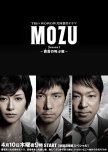
Don’t get the wrong idea, this drama is better than other Jdramas I saw this season; it’s also unique and quite exciting to follow but it simply couldn’t keep the pace. Mozu started amazingly; packed events, intriguing characters and an involving high-scale mystery. With such a promising beginning, you would draw certain lines in your head, such as “this drama will be some sort of masterpiece”. However, that never lasted for too long.
The problem with Mozu is the unbalanced events and empty parts that made concentration almost impossible. The screenwriting of this drama failed to keep thing coherent and well-built even with all the potential they gave it at first. Some episodes were too slow to ingest while others were too packed to fully understand, the screenwriter couldn’t spread his story the right way. Moreover, the high-scale conspiracy turned out to become too predictable for my taste; that was almost a criminal act against mystery/suspense lovers, I surely expected more than that from a drama co-produced by two of my favorite Japanese channels TBS and WOWOW.
The acting was superb; Nishijima was really good as Kuraki, he had an aura that I love to see in my male lead’s character especially with his tone and facial expressions. Maki and Kagawa were great main characters too; their acting was well suited for their characters. The remaining cast were remarkable, especially Ikematsu and Hisegawa; these two actors gave a chilling performance to make their character feel so complicated, hateful and even lovable.
The characterization for this drama was really nice especially with the back stories given to many characters in order to explain their behaviors. Although some characters weren’t that interesting and others didn’t maintain their involving traits until the end but overall, they were acceptable and even enjoyable.
The soundtrack for Mozu isn’t forgettable; I liked the way it connects with what’s happening. The cinematography was also dark and gloomy in a way that fits the drama’s tone.
Watch if:
-You like action, crime dramas.
-You like interesting characterization.
Do not watch if:
-You’re looking for a mind-blowing drama.
-You’re looking for a puzzling mystery.
On a personal level, I really didn’t hate Mozu despite all of its flaws. It sneaks into you somehow and makes you addicted especially if you’re into crime oriented stories. I enjoyed this and I certainly tried to overlook many of its obvious flaws. I call it a guilty pleasure but I surely liked this drama. I am only hoping that the screenwriter will revise his way of making events in the second season.
Was this review helpful to you?
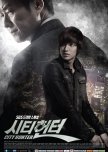
This drama’s story centers on revenge, action, friendship and romance: the ultimate combination to create various story’s developments all the time excluding any chance for dragging or slow moments. The intense events were always present to create cliffhangers at every turn in each episode. What I appreciated the most about this drama’s screenwriting was the action and revenge departments; they were really well done in a way that will make you believe they’re the core of the drama regardless of any other subjects. I also have to refer to the masked hero theme that was used in a great way.
The acting department was actually good. Lee Min Ho can be quite stiff but that doesn’t deny that his action scenes were pretty well done. Other cast were also appreciated since they could deliver feelings especially Kim Sang Joong who portrayed the villain role in a perfect way. As for characters, I believe they were nice to follow considering the fact that their developments were quite good.
As for music, I have to give this drama’s OST credit; not only they were well chosen but they were also put at the right moment creating an enjoyable atmosphere.
This drama can be watched by those who like action dramas mixed with revenge and romance or those who like the masked hero theme and thrilling stories. However, this drama should be avoided by those who dislike Lee Min Ho or those who are looking for a light drama.
If you’re willing to watch City Hunter, get ready to throw yourself in an endless circle of intense events without a drop of slow moments.
Was this review helpful to you?
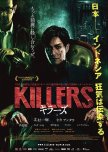
There are no twists to follow in here, the film kept a steady pattern as it unravelled the complicated human emotions between two killers and their surroundings. While it’s not so common for Indonesia and Japan to co-produce a film, I must say that it turned out quite well. The Mo Brothers previously caught my attention through another gory film. I love directors who go through all the trouble of inserting a deep meaningful plot into their gory productions. Although that may affect the brutality of the picture but it’s still way better than a gore for the sake of gore pictures.
Just like it was co-produced by the two countries, Killers’ plotline was divided between Indonesia and Japan. The film took its time to become interesting, it tried to start with a blow but it was unbearably slow until it finally picked interest. Generally speaking, the film has its own pacing problems that are hard to ignore. However, it still succeeded at conveying a meaningful message. The psychological take on serial killers had a deep effect in the main characters’ development. At some point, you would understand the directors’ aim of bringing those conflicts into an open showdown.
The narrative pattern was inserted with short sequences of dark humour that brought me to laughs. I always thought that black comedy was one of the better elements of gore productions. Talking about violence, the amount of bloody killings wasn’t exactly that high and the methods weren’t extremely brutal. I know that most people find this type of gore sick, disturbing and over the top but it’s definitely not, and I am speaking from the point of view of a splatter gore fan. This wasn’t hard-core enough but it was acceptable and enjoyable.
The acting was spot on. Kitamura Kazuki was extremely good as a professional serial killer; his aura and unique vibe made him portray the character in a perfect manner. The Indonesian male lead was also convincing but Kitamura owned the show for me. The characterization was quite deep, it was clear that the screenwriting worked its way to build a controversial relationship between two different types of killers. Their dialogue was one of the most entertaining phases throughout the whole picture.
The cinematography and directing were fine. Nonetheless, I found trouble to cope with the camera-work in the Indonesian part of the story; some shaky camera and close-ups didn’t come out right. Other than that, the whole atmosphere was rather catching.
Watch if:
-You like films about psycho killers.
-You like gory pictures with meaningful plots. Be warned however, this is not hard-core enough.
Do not watch if:
-You dislike gory productions or you can’t handle them.
“Killers” is a deep take about the surreal psychological side of serial killers. It has its own weak points but it was successful at depicting a stylish type of gore in a brutal gripping manner.
Was this review helpful to you?
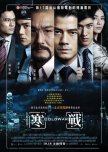
Hong Kong has been producing some cool action thrillers these years. Although most of them have been trying to unsuccessfully outclass Infernal Affairs but they merit great encouragement. Cold War is one of those films.
The directors Leung and Luk didn’t waste much time in building the thrills, ever since the first minute we get a badass explosion then the five cops were kidnapped triggering the beginning of the war. What I highly appreciated about Cold War is showing the ugly relationship between the higher-ups, some real life situations such as the greed for power and the corrupted systems. Rescuing the five officials became a war to both vice commissioners and those surrounding them. But then, a sneaky conspiracy comes to light making you suspect every single character that appears on screen.
However, that doesn’t deny the weaknesses contained in this film. Unfortunately, the film became quite heavy at the middle; pacing problems made some obvious flaws to ignore. It’s mainly related to the suspense part, it didn’t make the film dull but it’s bound to make the viewer impatient to what’s going to happen next. It was a somewhat long phase to ignore it. Moreover, the ending could have been better than that. The way they ended things implies a sequel that may never come. It would’ve been smarter if they cut things cleanly.
The acting department was downright penetrating. The versatile Leung Tony Ka Fai rocked so badly as M.B. Waise Lee, nothing less from such a high-profile Hong Kong actor. On the other hand, Aaron Kwok, who matured so well in recent years, did a marvelous performance as Sean Lau. The bickering scene between Lee and Lau at the first half is an absolute memorable piece. Charlie Yeung, Rahman Lee and the cameo of Andy Lau made this film such a good ground, acting wise.
Considering the fact that this is an action thriller, the action scenes weren’t always that well-made. But the shooting scene at the highway definitely got me; it was probably the best action sequence in the whole film. The cinematography was good enough. However, you have to keep in mind that this was Leung Lok Man and Luk Kim Ching’s debut film as directors and screenwriters. We all know how hard it is to write and direct an action thriller so both of them deserve all the encouragement.
Watch if:
-You’re in the mood for a watchable action-thriller.
-You like politics and higher-ups bickering inside crime thrillers.
-You want to see great performances by Leung Tony Ka Fai and Aaron Kwok.
Do not watch if:
-You’re expecting a great masterpiece.
-You want a flawless action thriller.
Despite its flaws, Cold War is a brave piece of work that’s bound to make you interested. It’s one of those films which make you feel that Hong Kong’s crime thriller genre is still vividly alive.
Was this review helpful to you?
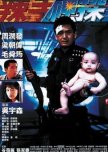
Let me keep this review shorter than most of my other detailed long ones. This is a classic action film produced in Hong Kong by the master John Woo and it’s definitely one of his better works to date. When I say action, I target every meaning behind the word. This is the epitome of the action genre that puts the majority of Hollywood action films to shame.
Is there a plot? Not really, is there realism? Heck no! The guy fires hundreds of bullets without even reloading, what common sense are you talking about? But who cares about that? The lovers of the genre don't watch for the plot or for realism, what matters in action films is the intense style of violence, bullets flying and once again violence! This is an extreme action film where everyone holds a gun (or two) and fire until they die. People are everywhere, explosions, motorcycles blowing up in the air, cars exploding and bombs. It’s all there, the camera was everywhere and those slow motion scenes are just magnificent. Nothing less from John Woo’s explosive directing style.
The main leads are cool just like John Woo’s typical main leads. The acting is superb, on one hand there’s the great Chow Yun Fat that lacks recognition and on the other hand, there’s the well-known great Hong Kong star Tony Leung. It’s a dreamy powerful combination that allows John Woo to make use of the brotherhood theme that he loves so much. There’s also a nice performance from Anthony Wong as the bad guy but he falls behind compared to Yun Fat and Tony.
Watch this if:
-You love action films because this is one of the best.
-You’re looking for action entertainment.
-You like John Woo’s films (especially his HK ones).
-You like any of the cast.
Do not watch if:
-You dislike violent films because this is the essence of violence.
-You’re looking for a certain plot because there’s nothing special in this film’s story.
-You dislike the genre action.
So why does this get a 9/10 from someone who’s very cheap with his ratings? It’s because I am an action junkie and Hard Boiled is one of the best Action films ever made in the history of cinema, PERIOD.
Was this review helpful to you?
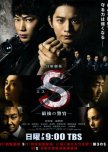
The drama is based on a manga that I haven’t read so I can’t compare but from the overview, I am sure this story can make a fine anime if that’s ever planned. I always said that Japanese tend to pick interesting and different plots for their dramas; this is definitely one of those intriguing topics that invade Japanese seasons each year. The plot may seem a little heavy due to some episodic procedures but it’s smartly written to overtake certain sensitivity against the episodic pattern.
S - Saigo no Keikan (aka S - The Last Policeman) is about Special Forces in the Japanese police organization and their way of handling terrorist attacks or situations. The main focus of the drama is NPS, a new special force that gathers the qualities of two older Special Forces SAT and SIT. NPS’s purpose is to secure criminals without killing them, that’s the main belief of the force, its members and our main lead. The operations’ build-up feels quite real although the final outcome can be fairly dramatized for the sake of emotions.
Despite being a straightforward action drama with lots of gun shooting and explosions, the drama’s main focus was the ethics and the feelings behind each case. It’s indisputably not brainless action for the sake of entertainment, it’s also not action games for the sake of thrills, military techniques or the suspense; it’s action for the sake of human emotions and relationships. It was an interesting take of the police, its higher-ups and the power struggle between Special Forces.
Acting wise, this drama’s producers knew how to choose their leads, supporting roles and even guest stars. Mukai Osamu and Ayano Go had a good chemistry as opposites in the same line of work. Although Ichigo’s character would sound a little cheesy with his over-concentration on not killing any criminal but he managed to keep the character interesting until the very last end. However, Ayano’s Soga was more penetrating with a cold character and a detailed back story. Another interesting character must be Odagiri Joe’s Masaki Keigo, the actor does crazy roles so well; I am glad I will be seeing lots of him this year. If we talk about acting then we shouldn’t forget the veteran Omori Nao and other cast members that delivered so well no matter how small the role was.
The action department was quite intriguing at times, even though shooting and bombs’ explosions weren’t present each episode but the Special Forces techniques and operations’ codes were believably made. The OST and cinematography were also pretty fitting for the drama.
Watch if:
-You’re looking for a good Japanese action drama.
-You like dramas that focus on special themes.
-You’re looking for a good casting line-up.
Do not watch if:
-You can’t stand the episodic pattern.
-You dislike the Japanese way of making action dramas.
-You’re looking for romance.
S - Saigo no Keikan is an entertaining drama with lots of action to keep you entertained mixed with dramatic moments to stimulate emotions. I will be impatiently waiting for the film!
Was this review helpful to you?

Takashi Miike is one of my favorite directors. Being the lord of gore is one of the main reason why I like him and Ichi the Killer is absolutely the epitome symphony of violence Miike ever made. I am into bloody productions: mutilation, torturing, splatter-gore, cutting body parts to pieces, heads rolling and everything that belongs to the category; you can call me eccentric or a psycho but those are my personal references and a part of my real life job. However, the reason why I liked Ichi the Killer and many of Miike’s films is not the gore for the sake of gore, it’s true that I like that element but it’s not enough to make me like a film, there has to be a message and a meaning behind it all.
Ichi the Killer has a dark graphic storyline; it tells the story of Ichi, a psycho killer who split people to halves and sometimes to little pieces through razors in his shoes and Kagihara, the masochist who’s looking for the killer of his gang’s leader who happens to be Ichi. That’s the general plot but there’s much more behind the events and the characters’ development, the hidden meanings and the final reveal of the characters’ relationships was pretty amazing and let’s not forget the mind-boggling ending that keeps your imagination wild. None of this would have been done without the fantastic performances of the charismatic brilliant actor Asano Tadanobu and Omori Nao, who had to play a childish character at one second and a sadist killer at the next moment.
Now let’s talk about violence, the main lead in this film; it was creative and pretty well-made sadist type of violence. People call Miike a “cult” or a “sadist” director and he probably is, the way he shot the explicit gore scenes was truly brilliant with all of those cutting and blood’s splashing everywhere. It makes this film one of the kind if we consider how far he went with bloody scenes, I haven’t seen that anywhere before. What also makes the violence special is that it was entertaining, I found myself laughing at few scenes and no, it’s not because of my sick personality; there were some amazing dark humor moments inserted in this film because Miike can mix gore and comedy so well (think Dead or Alive trilogy).
Watch if:
-You like gory films with a meaningful storyline.
-You like Takashi Miike’s way of making films because this is probably his best work.
-You like bizarre Japanese productions.
Do not watch if:
-This is absolutely NOT for the faint of heart.
-You dislike anything that has to do with gore or you can only handle a little amount of it.
-You dislike over-the-top violence.
-You’re easily disturbed or grossed.
Ichi the Killer is the highest level of cinematically shot violence. It’s without doubt not for everyone, it can be a hit or a miss, some would find it a masterpiece and others would run away from the first few scenes. It’s bloody as hell and I completely loved it.
Was this review helpful to you?
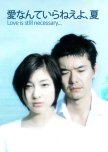
Now, let’s leave my proud self aside and talk about the drama. This is the original root of both “Love Me Not” and “That Winter the Wind Blows”; the Korean film and drama are remade from this Ai Nante Iranai Yo Natsu. I always had this drama under my radar ever since I first saw the film few years back but the lack of subtitles pushed me away, luckily I had enough courage to pick it up lately.
If I compare versions; I would undeniably state that the original Japanese version is the most realistic one but not fast paced as I thought it would be. However, the flowing of events was quite smooth that the drama felt very addictive. Although I should’ve watched this drama slower, because after all, I had to be extra focused on what they say but I just couldn’t slow down. It didn’t even matter that I already knew what will happen next (except for the ending of course because I knew it would be dissimilar one way or the other).
What also lacked in the Japanese version is the skin ship; there was lots of skin ship in the Korean remakes especially the drama but in here, it was almost absent. Many people would consider that disappointing, as for me; I found nothing wrong with that because the genuine feelings spoke better than touches in here. Also, this drama’s ending is way better than the ending of Love Me Not and That Winter the Wind Blows combined.
For those who aren’t familiar with the plot, this drama had an enjoyable atypical story. It could have gone a little astray at some points but it always managed to come back to its usual pace in no time. What also catches the eye about this drama is the sincerity of emotions displayed even if some melodramatic moments were a bit too exaggerated.
The acting was pretty enjoyable and believable. I am somewhat having Watabe Atsuro’s phase and I am glad to see one of his older dramas where he did a great job with the role. As for Hirosue Ryoko, I really like to see that actress around; she always manages to attract me in. The rest of the cast did a respectable job.
The characters felt very real. For instance, the way Reiji was portrayed was straightforward in an almost perfect manner; the way he talks, smokes, acts around other people is the core of how that character should be like. As for Ako, she was also quite good and she didn’t show unbalanced contradictions which I truly appreciated. The side characters were also good but I am sure some of them could have been better than that.
It’s a given that the Korean remakes were more beautiful than this when it comes to visuals especially the drama because that’s what Koreans do best: their remakes are always glowing with dreamy cinematography and sceneries but you should keep in mind that this was produced back in 2002. I also should mention that this drama was set in the summer while the Korean film and drama took winter as their set. It’s a bit insignificant but I found the winter background way more appealing than the summer setting.
Watch if:
-You liked any of the Korean versions because this is what started it all.
-You like the Japanese way of making melodramas/Life productions.
-You want to watch something different and enjoyable.
Do not watch if:
-You dislike remakes; just stick with the version that you already watched.
-You dislike life and melodramatic dramas.
-You want to watch a vividly shot drama.
Ai Nante Iranai Yo Natsu is a well-made drama with a nice topic that deserves to be watched even if its Korean remakes got all the attention. It’s a loss that many are prevented from watching this drama due to the lack of subtitles.
Was this review helpful to you?
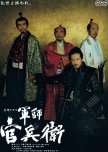
Kurode Kanbe is an acknowledged figure of the Sengoku period –the most chaotic era of Japanese history. He came from a humble clan in Himeji Castle but he distinguished himself through his impressing battle tactics. I will stop here to not spoil those who are unfamiliar with the history of the main character.
This taiga drama illustrated the life of the historically-famous strategist. It wasn’t only a numeric retell of his life story. On the contrary, Gunshi Kanbei was more focused on the emotional side more than anything. Which implores that you will get to know the story without the clinical heavy/slow pacing.
Sengoku Jidai is known for its numerous battles, renowned generals, political clashes, lots of betrayals and utter turmoil. This drama didn’t only illustrate Kanbe’s personal battles but it also included all of the major events that occurred during his lifetime. And since he was close to several main figures of the era, Kuroda Kanbei found himself entangled in all of those continued wars. He was forced to make critical decisions and became a key character in the unification of Japan.
That aside, Kanbe’s familial life was also put in the spotlight. His relationship with his vassals, his wife and his offspring was vastly explored and beautifully dramatized. But the over-idolizing was probably a bummer. Kuroda Kanbei wasn’t exactly a selfless man like the screenwriting pictured him to be. He was known to be quite ambitious. They didn’t focus much on that side except near the end. But again this isn’t a documentary and the main historical points were left untouched.
As usual in Taiga dramas, the cast was relatively loaded. Okada Juichi was marvelous as Kanbe. He’s definitely a rare Johnny’s –an idol of high caliber. I am so glad I got to first meet him through this. Other cast members were pretty fitting. But the ones who stood out the most were Egushi Yosuke’s Oda Nobunaga (one of the best portrayals of the legendary character), the penetrating performance of Takenaka Naoto as Toyotomi Hideyoshi, Nakatani as Kanbe’s wife, Tanihara Shosuke short yet amazing portrayal of Takenaka Hanbe and other remarkable talents like Tanaka, Kuroki, Uchida, Ikuta, Matsuzaka, Hamada, Tsurumi and Takahashi.
The directing was noticeably improved from previous taigas but it’s nowhere near perfect. The cinematography was catching. The sceneries and outfits were as usual historically accurate despite some insignificant flaws.
The smooth flowing of events in Gunshi Kanbei proves that this is an impeccable example of how taiga dramas are supposed to be.
Was this review helpful to you?
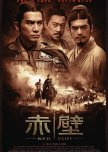
I really dislike the word “epic”, I believe it’s over-used and misunderstood by many but if I can call a film epic then Red Cliff must be one of the fewest that are allowed to have that description. I saw the DVD release of Red Cliff back in 2009 so I initially thought it was only one film but later on, I re-watched them separately and I am able to judge each production on its own.
Now, as a usual part for my historical productions’ reviewing, I must give history credit and allow the film to be put in its exact temporal and special frameworks. It’s because I am history’ lover that I can’t help but narrate some facts that happened in real life thousands of years ago, so let’s have a little round in history before reviewing the film itself. You can always skip this part if you find it boring.
The year is 200 A.D, the late Han Dynasty and the place is the famous China. Cao Cao (Prime minister of the Han Dynasty), the most cunning, evil and fierce man in the Chinese history took control over Northern China and made the emperor a puppet ruler but that wasn’t enough so he decided to embark an attack on Southern China’s ruler Lord Liu Bei who is known by his generous deeds and strong general followers. Cao Cao led a huge army of eight hundred thousand soldiers to conquer the south which forced Liu Bei to seek alliances with other Southern Lords, the young ruler Sun Quan and military expert Zhou Yu. In order to convince them, Liu Bei sent his prime advisor and the most impressive strategist in Chinese history Zhuge Liang to accomplish the mission.
Cao Cao’s enormous army is constituted with surrendered lords so there was no loyalty and thus he always feared betrayals, which makes him envious of Liu Bei’s side that’s full of great generals that aren’t only loyal but they’re also quite strong. However, no matter how great the generals are, they’re massively outnumbered by Cao Cao’s army so how can they overcome it? The answer can be found out either by reading history or watching the film because I would be spoiling things if I mention it but let me warn you that this film doesn’t exactly provide the entire answer.
Enough with history, the film itself was well done in a way that would let you get to know what happened even without searching it up. The storytelling may not have been flawless in any way but it did deliver what has to be told. John Woo is known for his badass action films and I do agree that they’re his strength point but there are other elements that people forget or refuse to notice about his works such as the characterization. John Woo is a master at building his characters by using the brotherhood and honor elements and he didn’t change his rule in this film; he only reduced the amount.
What this film excels at beside the stunning cinematography is the war techniques. We get to see John Woo's interpretation of Zhuge Liang's "ba-gua" strategy, the fighting abilities of each general and the amazing portrayals of several wars’ strategy although the major battles were saved for the sequel. The use of slow motions and the clever built up of battles and action is an extreme plus point for this film.
The acting was high-class. It’s really challenging to find good actors who can give the famous historical figures their right characters and what’s best than Tony Leung, Kaneshiro Takeshi, Chang Chen, Fengyi Zhang and several great HKC actors for the job? They did quite well with their characters but I’ve got to give Tony higher credit for the way he made Zhou Yu feel so firm just like the history describes him to be. It’s one of my favorite Tony’s roles up to date.
There’s also Takeshi who made Zhuge Liang, which is one of my favorite historical figures ever, feel so vivid but maybe a little more too humorous than he should be. To be honest, I thought Takeshi was too “pretty” for the role. I like the guy, I really do and I believe he’s a great actor but I wasn’t too confident to see Liang being portrayed by him. However, after watching this, I was proven wrong and my doubts went into thin air.
The women department in this film felt a little unnecessary but still fitting. I liked Vicki Zhao’s casting and role but I am afraid I can’t say the same about the first big screen’s appearance of Lin Chi Ling.
The music for this film was pretty suitable for the theme and the rewatch value is high because this is one of the greatest films’ that deserve to be reviewed.
Watch this if:
-You like Chinese history or you like to get to know it more.
-You like war films’ because this is one of the best.
-You like John Woo’s films.
Do not watch if:
-You dislike war films.
-You dislike any of the cast.
Red Cliff is surely one of the greatest war films ever made with the touch of Asian history and some Hollywood cinematic techniques delivered by the master john Woo in the most beautiful way ever.
This review is for the first part of Red Cliff and the second part is coming up next.
Was this review helpful to you?
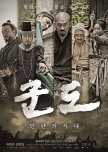
There's nothing new under the sun, the film is about a Ronbin Hood-like gang who steals from the corrupted rich and gives to the helpless poor. Set in the twilight years of Joeson period, the film is a hybrid historical piece about martial arts, nobility and revenge. The plot takes its time to make the main character meet his destiny but the remaining space wasn’t wasted at all; the screenwriting always focused on the remaining characters and some colourful dialogues in between.
Kundo depicts a strong combination between the usual Asian melodrama and martial arts’ style. It was successful at portraying both flying fighting scenes as well as the characters’ feelings within. It also focused on inserting some pretty nice dark humour sequences without disregarding the serious melodramatic tone of the period piece. The over use of explanatory narration might come out wrong in few sequences. The screenwriting over-focused on some trivial side stories but it managed to come back into the right track soon enough.
Led by the overly charismatic Ha Jung Woo, the acting department was impressive. The main character had a very rough start that made him a part of the Kundo tribe, his journey was pretty much enjoyable and Jung Woo was too darn good at making it feel real – except the age part of course, there’s no way he looks 18 to 22 year-old.
On the other hand, Kang Dong Won was the freaking king of the action department in this film. Being used to swordsmanship due to his other period action films; he did the whole remarkable martial arts himself without resolving to stunts; that’s in itself is too wonderful for words. Other than that, he was amazingly good at playing the role of the dangerous villain. Of course, the back story provided to his character was extremely helpful at setting an unbreakable ground for what he has to portray. It’s been a long time since I last saw a very detailed back story of a villain; as if they’re making you think that any monstrous thing he does is legitimate.
Other actors were pretty good; they were fit to each character they played especially the Kundo group where Ma Dong Seok, Jo Jin Woong and Lee Kyeong Yeong are only few to mention.
Inspired by Kurosawa and Tarantino’s filmmaking, director Yun Jong Bin pulled off a memorable piece. His directing style was poignant with top notch technicalities. It’s a fact that visuals worked so well for this film, the lavishing designs and well-chosen colours were a great plus for this film’s cinematographic appeal. Even the polished sceneries, well-crafted aristocrats’ mansions and clothes were very well handled.
Watch if:
-You like dramatic period pieces with action.
-You like combination between Asian and western filmmaking.
-You like the main actors because Ha Jung Woo and Kang Dong Won were extremely good.
Do not watch if:
-You dislike historical pieces.
Despite some minor flaws, Kundo Age of Rampant is a very pleasant period film that’s well-worthy of the domestic success it witnessed upon its release.
Was this review helpful to you?
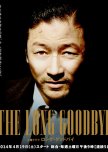
The Long Goodbye is another adaptation of the very popular Raymond Chandler’s novel. While watching this drama you would get the exact feeling of watching an old Hollywood noir film with all of those pitch-black moments and intriguing tension. However, that doesn’t deny the persistent existence of Japanese fingerprints such as post-war atmosphere and some elements that represent Japan alone.
This somewhat mini-drama depicts a long mystery, it’s not the type of murder that will keep you on your toes to know the truth but it’s certainly the type that creeps into you to give you a nice blow at the end. The suspense part wasn’t fully used but the mystery build-up and revelation were absolutely captivating. For some reason, this drama wasn’t slowly-sailing at all, you’d expect such a drama to become heavily gloomy at some point but it didn’t. Of course it wasn’t humorous either but the use of the dark aura came with moderation; the poisonous relationships, the filthy lies and the intolerable truth didn’t come in one blow. It was slowly building up until it was mature enough to be revealed.
The name of Asano Tadanobu as the main lead of this drama was enough to make me blindly watch this; it’s not only because he’s one of the greatest Japanese actors alive or because he’s one of my all-times favorite actors; it’s also because the man can choose his roles so well. He’s also films’ star so getting the chance to see him in a drama is one of the better news I read this year. Leaving that aside, his portrayal of Banji Masuzawa was consuming, although his character was silent and he couldn’t do much about it but he was able to make it perfectly charismatic and when he snaps; all you have to do is sit back and see how high-profile acting is supposed to be like.
Other actors for this drama were also amazing. First there’s Ayano Go; someone who slowly building his acting to reach greater levels; he was able to make his character quite appealing even with the little running time. Second, there’s the definition of Japanese beauty Koyuki; she was impressive in Aiko’s role, I had a difficult time comparing this to her previous “innocent” housewife roles. Finally, there’s Furuta Arata; man is a very-underrated Japanese veteran actor, he rarely got roles to shine in them but in The Long Goodbye, he was finally given justice.
The cinematography for this drama was quite catching; Japan in the 1950’s was brought to current days with glamour. As for the music, it was too perfectly-chosen to fit the drama’s developments and tension built up. Other than that, the narration must be the strongest point amongst side effects. Takito’s way of narrating was too intriguing to describe, not only his wonderful tone or use of words; but there’s also this artistic and vibrating meanings behind it.
Watch if:
-You’re looking for a different type of Japanese dramas.
-You like Raymond Chandler’s novel because this is a fine adaptation.
-You’re into dark, slowly-building types of mysteries.
-You like Asano (Duh!)
Do not watch if:
-You’re looking for your standard Japanese detective drama.
-You can’t handle slow-sailing mysteries.
-You dislike noir dramas.
The Long Goodbye is an unusual Japanese detective drama that falls between noir and mystery. It may not be to everyone’s liking but it’s absolutely a drama that was able to distinguish itself from the crowd.
Was this review helpful to you?

























